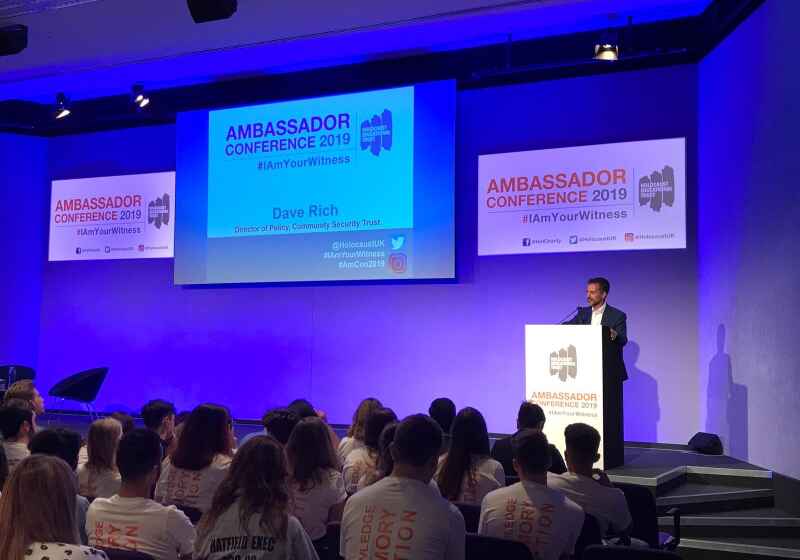CST Blog
Remembering those who fought back
19 April 2013
Today is the 70th anniversary of the start of the Warsaw Ghetto Uprising on 19th April 1943.
To mark this occasion this week's Jewish Chronicle essay, by Martin Winstone of the Holocaust Educational Trust, details the many different ways in which Jews resisted the Nazi Holocaust:
The landscape of Holocaust remembrance is punctuated by anniversaries, but few dates are as resonant as April 19, which marked the start of the Warsaw Ghetto Uprising in 1943. Its enduring symbolism is attested to by the fact that it is the national Holocaust Remembrance Day in Poland, the country from which more than half of the victims of the Shoah came. This year, the 70th anniversary, represents one of the last landmark commemorations in which survivors and witnesses will be able to participate.
In Warsaw, memorial events will continue until May 16, the date commonly accepted as the end of the revolt. This in itself shows why the uprising occupies such a central place in both Jewish and Polish narratives of the Holocaust: a group of poorly armed, inexperienced guerrilla fighters resisted German forces for almost a month in what was the first major civilian revolt in occupied Europe. It is thus hardly surprising that it has become the supreme symbol of Jewish resistance.
Despite this, Jewish resistance is often marginalised in accounts of the Shoah. Even some of those who have celebrated the uprising have used it to reproach other European Jews for alleged passivity. During the war itself, many critics - Jewish and non-Jewish - claimed that the victims had allowed themselves, in an oft-used phrase, to be "led like sheep to the slaughter". But such arguments simply do not stand up to serious scrutiny.
[...]
Of course, one should be careful not to exaggerate. As Bauer reminds us, we should not assume that the majority of Europe's Jews were fighting or writing diaries. The Holocaust brought untold misery and destruction, and it was only human that many succumbed to despair, and that ties of communal and even familial solidarity were often frayed. "It is wrong", he writes, "to demand that these tortured individuals and communities should have behaved as mythical heroes." Rather, "the fact that so many of them did is a matter of wonderment."
April 19 2013 ought to encourage us to consider not how little resistance was offered by Jews during the Shoah but how much. Amid the speeches and laying of flowers in the Ghetto Heroes' Square in Warsaw, we will be reminded of the myriad ways in which ordinary human beings, confronted with the most extraordinary of circumstances, sought to assert basic values of dignity and solidarity. No one could have demanded more.
The essay can be read in full here.


